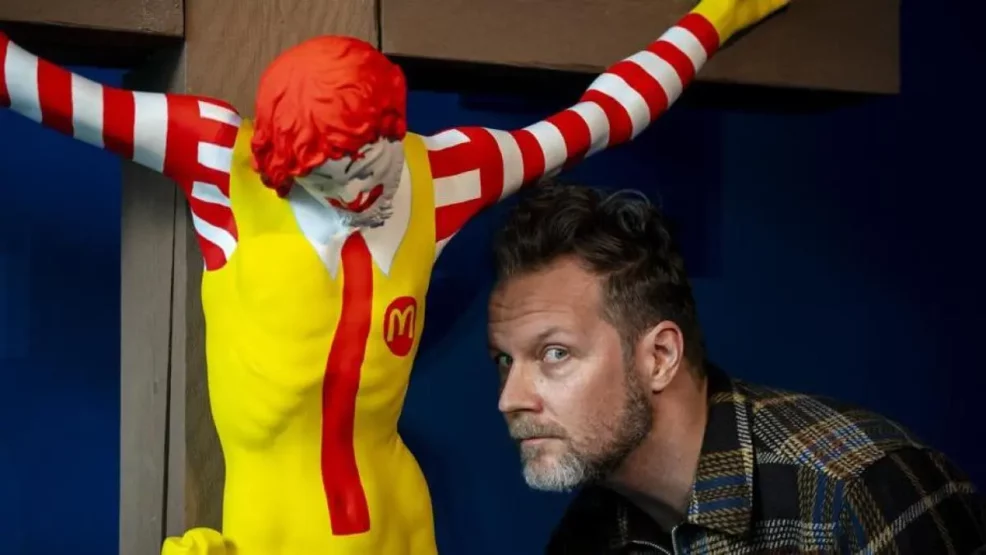Artist
Jani Leinonen
Sculptor
Jani Leinonen (b. 1978, Hyvinkää, Finland) is a multidisciplinary artist known for his provocative critiques of capitalism and consumerism. His work, strongly satirical and playful, addresses current issues with the aim of inciting reflection. Inspired by popular culture, he uses corporate imagery to ridicule the marketing strategies of large companies like McDonald’s.
One of his most striking projects is Hunger King (2014), an installation created in Budapest, Hungary, which parodied Burger King to denounce the Hungarian government’s harsh laws against the homeless.
Another of their most high-profile acts was the kidnapping of the iconic Ronald McDonald doll, captured in a video with an aesthetic inspired by al-Qaeda messages. The action was presented as a symbolic terrorist act carried out by a fictional organization called the Food Liberation Army . In the video, the “kidnappers” demanded that McDonald’s review its work ethic and production practices. The fast-food chain responded that it did not negotiate with criminals, and as a result, Ronald was “decapitated.”
In 2019, Leinonen again sparked controversy with his work McJesus , a sculpture depicting a crucified Ronald McDonald. The piece, on display at the Haifa Museum in Israel, sparked violent protests from Christian groups, who demanded its removal.
Throughout his career, Leinonen has received several awards, including the Finlandia Prize from the Finnish Ministry of Education and Culture in 2016, awarded in recognition of his artistic career.

